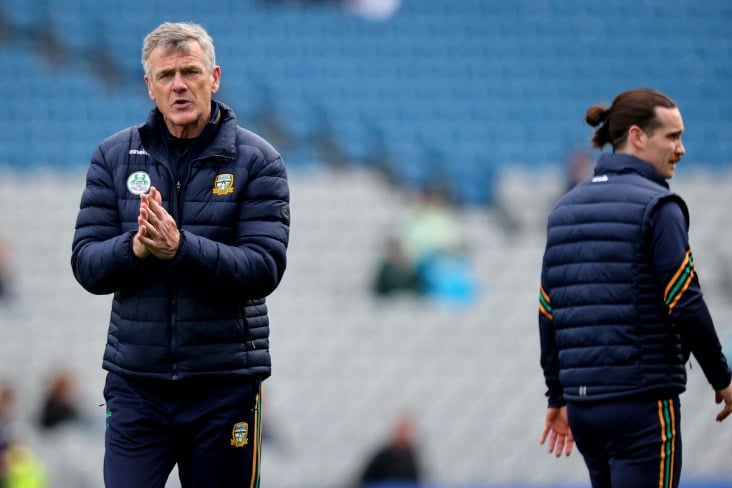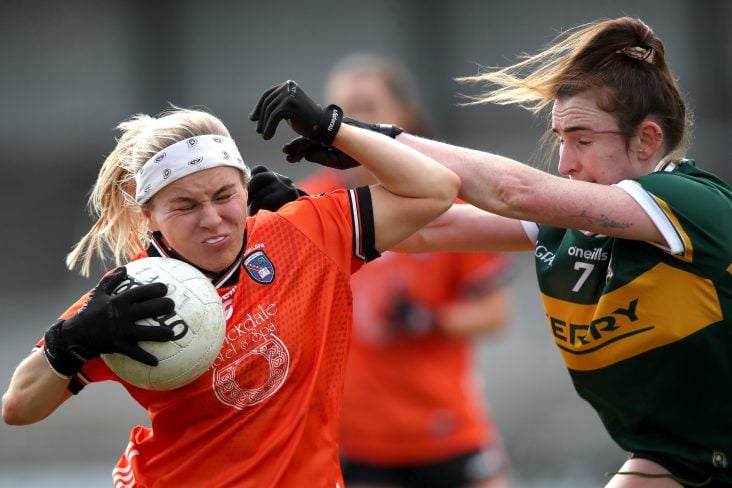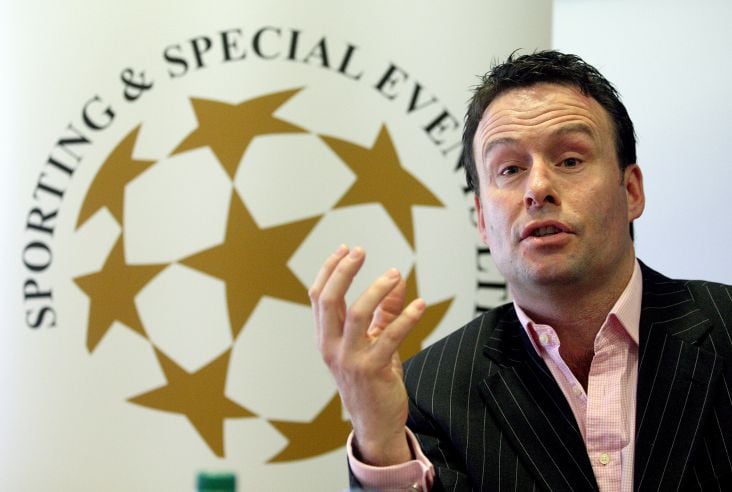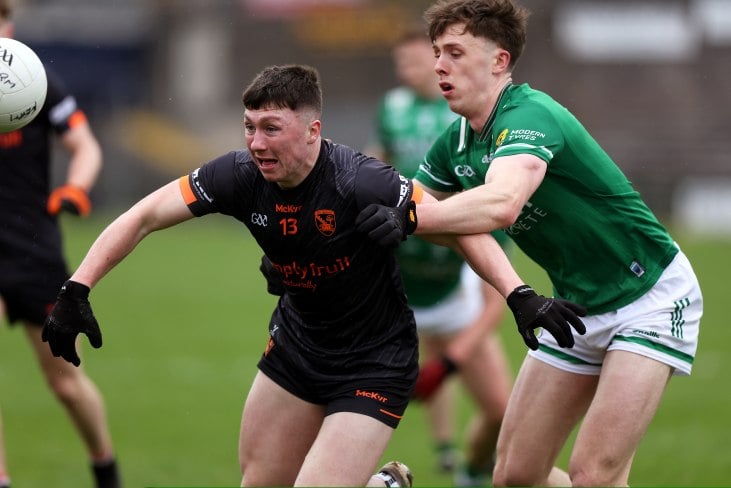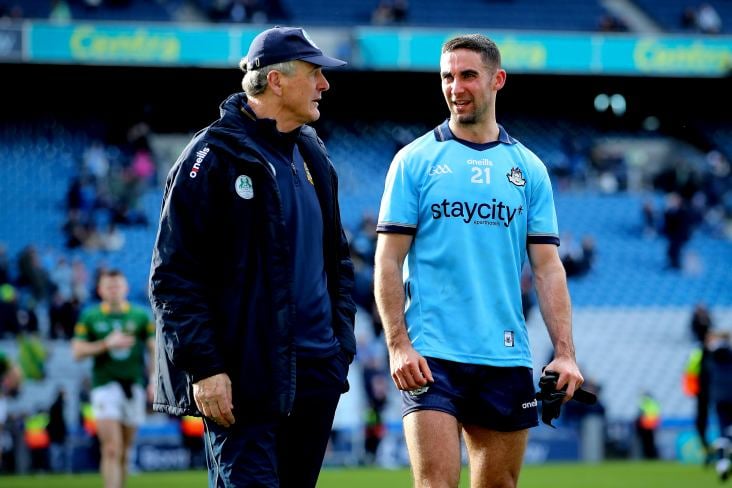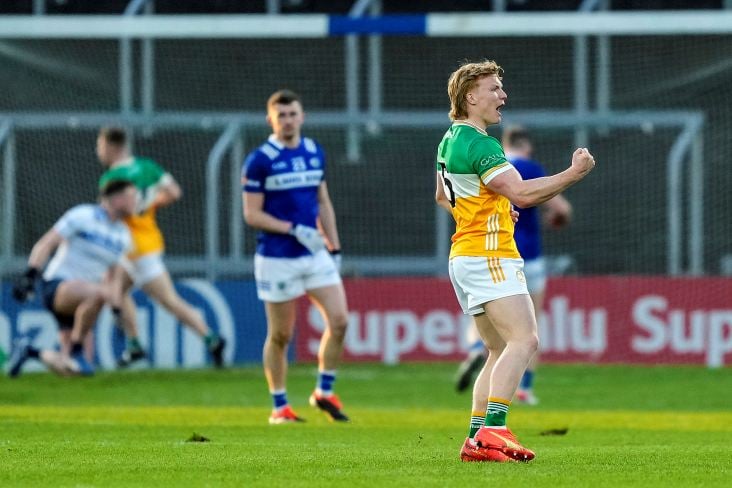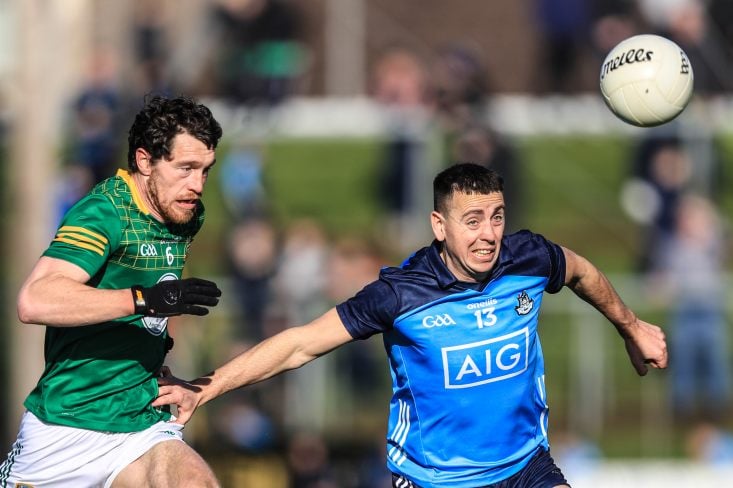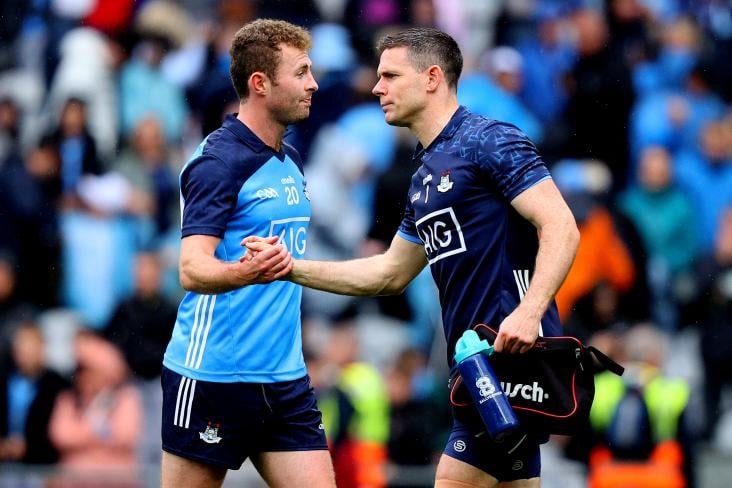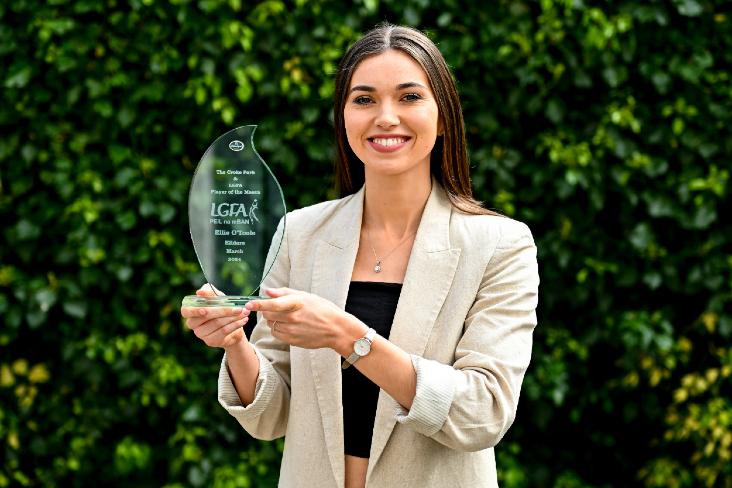"Where a rule can't be enforced it shouldn't be there"
January 06, 2022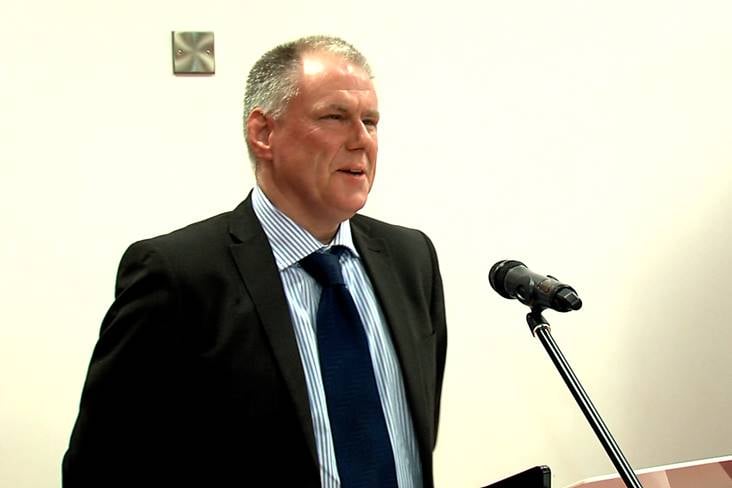
Chief Executive of Ulster GAA Brian McAvoy.
Ulster GAA secretary Brian McAvoy is calling for the ‘four steps’ rule in gaelic football to be replaced by a ‘two seconds’ limit.
Writing in his annual report to the 2022 Ulster Convention, which will be held on Friday, January 14, McAvoy states that the current rule, which allows a player to take four steps before having to hop or solo the ball, makes life difficult for referees and outlines his preference for a ‘time-based approach’.
“The rule has been in place for many years and in relation to hurling it largely continues to fulfill its purpose. The same, however, cannot be said for football,” McAvoy writes.
“It was introduced in an era when 'catch and kick' was the norm and for a player to take even four steps was something of a rarity.
“But the game has evolved - it has changed from a game of 'catch and kick' to a possession game and the rule has failed to keep pace with the evolution of the game. In the modern era a player can have taken four steps before you have time to blink and if a referee in Gaelic Football attempted to implement the rule there would be chaos. They therefore, understandably, choose to ignore it.
“Rarely is a player in possession of the ball penalised for 'over-carrying' (other than when he is surrounded by opposition players) and the vast majority of players take at least seven or eight steps between 'toe-taps' when they are moving unimpeded.
“On many occasions it's many more as we witnessed in a recent All-Ireland final. Where a rule can't be enforced it shouldn't be there.
“Some players move so fast that it would be almost impossible for a referee to count steps in real time, especially when he has so many other matters of which to be mindful.
“A 'time-based' approach rather than a 'steps-based' approach is obviously the approach. I therefore believe that the GAA's Standing Committee on Playing Rules should consider the issue of steps in Gaelic football with a view to bringing forward a proposal for experimentation in 2022 or 2023.”
Tweet